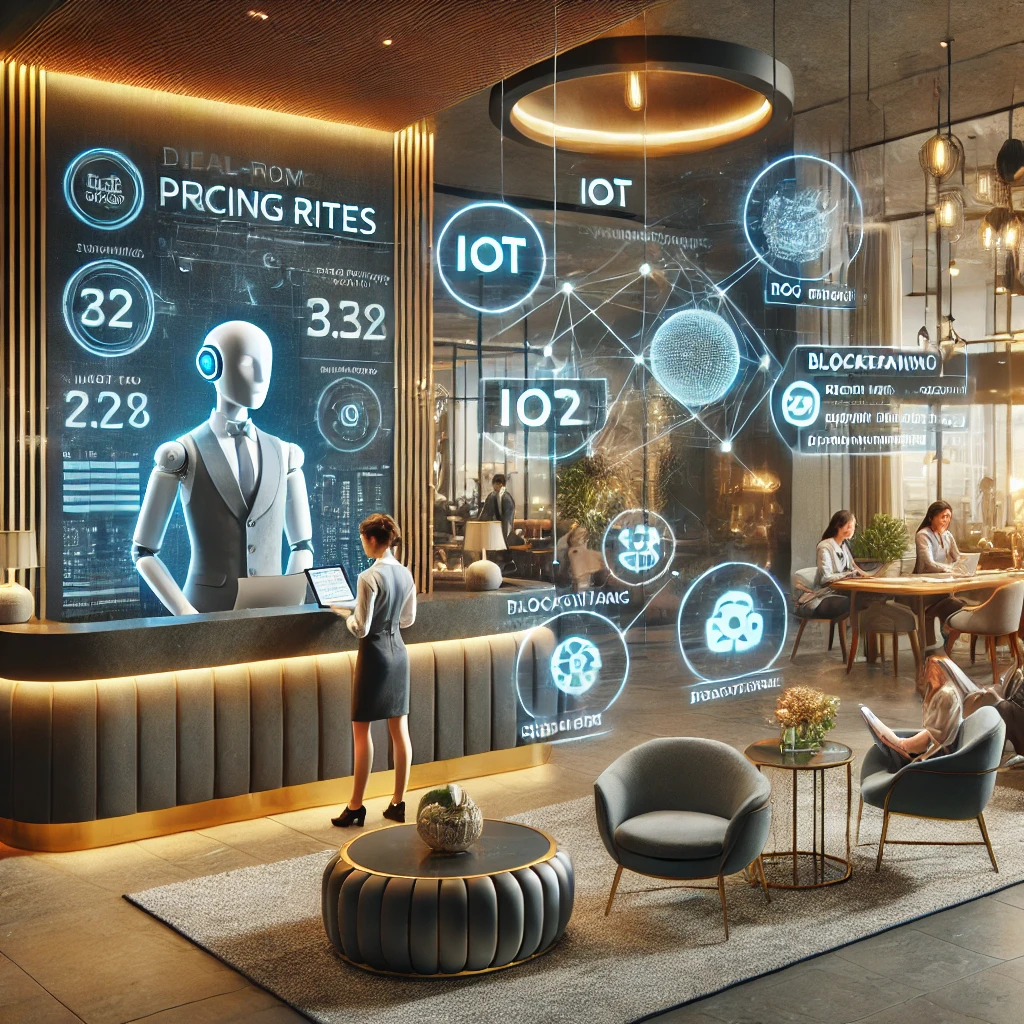The tourism and hospitality industry stands as one of the most dynamic and impactful sectors in the global economy. It encompasses a broad range of businesses, from luxurious resorts and boutique hotels to charming bed-and-breakfast establishments and eco-friendly lodges. In this article, we explore the pivotal elements that make the tourism and hospitality industry thrive, focusing on innovation, guest experience, sustainability, and the importance of local culture.
The Pillars of Guest Experience

At the heart of the tourism and hospitality industry lies the guest experience. Whether it’s a solo traveler seeking solitude or a family vacationing together, the level of care and attention provided can make or break a business. Exceptional guest experience is built on four pillars:
- Personalization: Understanding and catering to the unique needs of guests can transform a standard stay into an unforgettable memory. From tailored room preferences to customized itineraries, personalization fosters loyalty and repeat visits.
- Technology Integration: Modern travelers expect seamless digital experiences. Hotels leveraging mobile apps for bookings, digital concierge services, and contactless check-ins not only meet guest expectations but also enhance operational efficiency.
- Impeccable Service: The cornerstone of hospitality, impeccable service is about going the extra mile. Training staff to anticipate needs, maintain a positive demeanor, and resolve issues promptly ensures guest satisfaction.
- Atmosphere and Aesthetics: The ambiance of a property sets the tone for a guest’s stay. Thoughtful design, local art, and comfortable amenities contribute to creating a welcoming environment.
Innovation in Hospitality

The tourism industry thrives on innovation, adapting to changing trends and consumer demands. Key innovations include:
- Smart Rooms: Many hotels now offer rooms equipped with smart technology. Guests can control lighting, temperature, and entertainment systems via voice commands or apps.
- Virtual and Augmented Reality: VR and AR are revolutionizing how properties market themselves. Virtual tours allow potential guests to explore accommodations and destinations before booking, while AR can enhance on-site experiences.
- Sustainable Practices: As eco-consciousness grows, hotels are adopting green initiatives. Solar panels, water conservation systems, and the elimination of single-use plastics not only reduce environmental impact but also appeal to environmentally-minded travelers.
- Culinary Experiences: Culinary tourism is on the rise. Hotels that offer farm-to-table dining, cooking classes, and locally inspired menus cater to food enthusiasts looking for authentic flavors.
Embracing Sustainability

Sustainability is no longer optional in the hospitality industry. Modern travelers prioritize properties that demonstrate a commitment to environmental and social responsibility. Key strategies for achieving sustainability include:
- Energy Efficiency: Implementing energy-saving technologies, such as LED lighting, energy-efficient appliances, and smart thermostats, reduces operational costs and carbon footprints.
- Waste Management: Hotels can adopt comprehensive recycling programs, compost organic waste, and partner with local organizations to reduce landfill contributions.
- Supporting Local Communities: Establishments that employ local staff, source supplies locally, and promote regional crafts foster economic growth and cultural preservation.
- Eco-Friendly Architecture: Designing buildings with sustainable materials and incorporating green spaces enhances both aesthetics and environmental harmony.
Showcasing Local Culture

One of the most enriching aspects of travel is the opportunity to immerse oneself in a new culture. Hospitality businesses can elevate guest experiences by:
- Incorporating Local Design: Using local architectural styles and decor elements connects guests to the destination’s heritage.
- Cultural Events: Hosting traditional performances, workshops, or festivals allows guests to engage with the local culture firsthand.
- Authentic Experiences: Collaborating with local guides and artisans to provide unique experiences, such as guided nature walks, cooking classes, or craft-making sessions, adds a personal touch.
- Gastronomic Journeys: Highlighting regional cuisines and ingredients in menus lets guests savor the essence of the destination.
The Role of Technology

Technology plays a crucial role in enhancing efficiency and guest satisfaction. From AI-driven chatbots to IoT-enabled devices, innovations are streamlining operations and elevating service levels. Some key advancements include:
- Online Reputation Management: Monitoring and responding to reviews on platforms like TripAdvisor and Google My Business helps build trust and attract more guests.
- Dynamic Pricing Models: Using data analytics to adjust room rates based on demand ensures competitiveness and maximizes revenue.
- Blockchain for Bookings: Blockchain technology offers secure and transparent booking processes, reducing fraud and enhancing guest trust.
- Smart Marketing: Leveraging big data to personalize marketing campaigns ensures that promotions reach the right audience.
Overcoming Challenges

While the tourism and hospitality industry is resilient, it faces several challenges:
- Economic Fluctuations: Global events, such as recessions or pandemics, can drastically impact travel demand. Diversifying revenue streams and adopting flexible policies help mitigate risks.
- Staffing Shortages: Retaining skilled staff is a constant challenge. Investing in training programs and offering competitive benefits can improve employee satisfaction and retention.
- Sustainability Balancing Act: Balancing luxury with sustainability requires innovation and investment. Communicating these efforts effectively to guests ensures their appreciation and support.
- Regulatory Changes: Adapting to new laws and regulations, such as health and safety protocols, is vital for compliance and guest trust.
Looking Ahead: The Future of Hospitality

The future of the hospitality industry is shaped by trends such as:
- Bleisure Travel: The rise of remote work has blurred the lines between business and leisure travel, prompting hotels to offer work-friendly amenities.
- Wellness Tourism: Guests increasingly seek accommodations that offer wellness-focused services, such as yoga retreats, spa treatments, and nature-based activities.
- Hyper-Personalization: Advancements in AI will enable properties to offer ultra-tailored experiences, from curated playlists to bespoke itineraries.
- Sustainability as a Standard: The integration of sustainability will no longer be a differentiator but a fundamental expectation.
Conclusion
The tourism and hospitality industry is an ever-evolving landscape of opportunities and challenges. By prioritizing guest experience, embracing innovation, and committing to sustainability, businesses can thrive in this competitive sector. Furthermore, celebrating local culture and leveraging technology ensures a lasting impact on both guests and the communities they visit. As we look to the future, the industry’s ability to adapt and innovate will determine its success in creating meaningful and memorable experiences for travelers worldwide.
